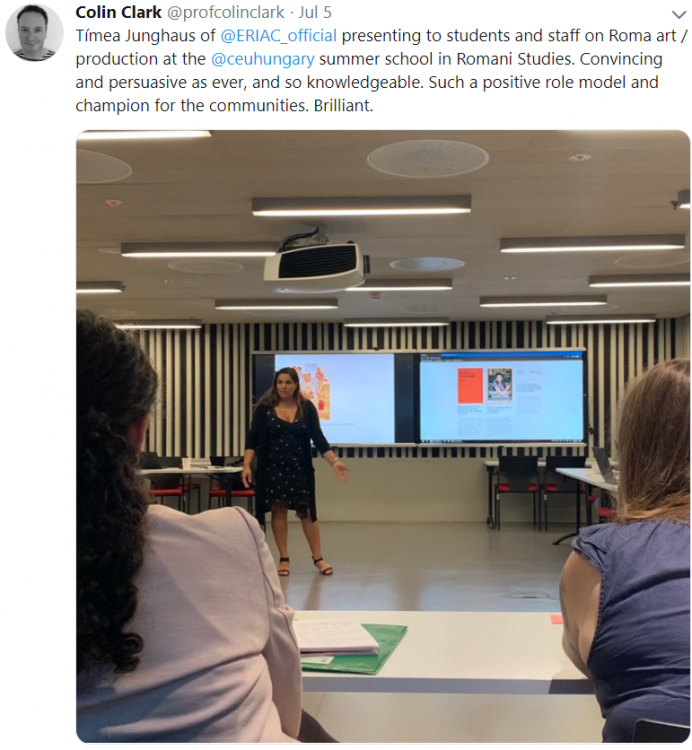2832
The Central European University (CEU) hosted a Summer School, entitled “Romani Identities and Antigypsyism” between 1 July – 12 July, 2019.
The summer course is part of the Roma in European Society Initiative funded by the Velux Foundations, Open Society Foundations Roma Initiatives Office, and the Roma Education Fund, in cooperation with Council of Europe.
This year, the Summer School focused on the nexus between Romani identities and antigypsyism. Antigypsyism is a core concept of Critical Romani Studies and can be used methodologically, analytically, and theoretically as a way of understanding the position of Roma in Europe historically and in the present moment. A growing body of scholarship grounds our understanding of antigypsyism in the Europeanization of the Roma issue and neoliberal regime expansion following the fall of communism. Other scholars originate antgypsyism in the nation-state building process. Some scholars define antigypsyism in the Euopeanization of the Roma issue and neoliberal regime expansion following the fall of communism. Other scholars originate antigypsyism in the nation-state building process. Some scholars define antigypsyism as an ideology and as a code of conduct that has been central to European culture.
The aim of this CEU Summer School was to link participating student and scholars with a transational network of scholars in order to investigate the forms of oppression faced by Roma and to analyse the mechanisms through which exclusion of Roma takes place in different fields of public life.
The directors of this summer school course were: Ethel Brooks (Department of Women’s and Gender Studies, Rutgers University, New Brunswick, USA) and Iulius Rostas (Romani Studies Program, Central European University, Budapest, Hungary); and the faculty members were Colin Clark (School of Media, Culture and Society, University of the West of Scotland (UWS), UK), Angela Kocze (Romani Studies Program, Central European University, Budapest, Hungary), Margareta Matache (FXB Center for Health and Human Rights, School of Public Health, Harvard University, Cambridge, United States of America), Marton Rovid (Department of Economics and Business, Central European University, Budapest, Hungary) and Timea Junghaus (ERIAC´s Executive Director).
ERIAC became one of the contributors to the CEU Summer School this year, with Timea Junghaus giving lectures on the topic of “The Epistemic, Political, and Insitutional Development of Roma Art”.
